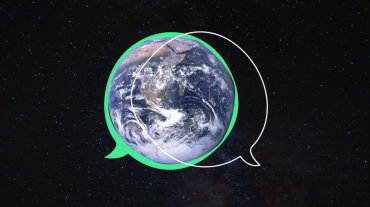How to make a delicious vegan burger
Get ready to shrink your emissions and wow your palate with chef Ed's secret recipe.
Ever heard “you are what you eat?” Sounds exaggerated, you may say. But if you think about it, our diets determine our inner well-being — as well as part of our personal footprints on the planet. Animal products are an enormous source of greenhouse gas emissions, use loads of natural resources, and aren’t so great for our health. The good news? Eating more plants is good for us AND the planet. It’s a win-win — one which you can bring to the table for tonight’s dinner.
Plus, what sprouts out of the ground is delicious, so switching to more plant-based meals shouldn’t be tricky — especially if you know a few good recipes to take inspiration from. And guess what, we're in luck today. Friend of Klima, Ed Leach, a Berlin-based vegan chef originally from Ireland, sat down with us to share his favorite vegan burger recipe.
Ed made the switch to plant-based cooking after years of working as a private chef for clients around the world. He always loved the creativity and flavor of vegan food. Eventually, he realized his guests often enjoyed his vegan dishes more than ones reliant on animal protein. That's when he decided to take on plant-based cooking as his full-time challenge.
Whether you’re already a vegan master chef or are simply starting to scrap animal products from your plate, Ed’s great lentil-based burger recipe is a sure-fire way to treat your tummy and the planet.

Here’s how to make chef Ed's plant-based burger step-by-step.
This recipe makes four burgers (or two, if you’re very hungry). You can easily make this meal gluten-free by replacing soy sauce with tamari and picking gluten-free buns.
(P.S. We tried this at home, and the result was absolutely scrumptious!)
Burger ingredients
100g cooked rice
75g cooked lentils (pulses are versatile and lend themselves as a perfect medium for sauce, which is essentially what meat does. Pick tougher lentils such as beluga if you can)
50g of rice flour or chickpea flour
25g of cornflower (helps to give the burgers a nice crunchy texture on the outside)
2 tbsp of soy sauce or tamari
1 tsp smoked paprika
1 tsp cumin
1 tbsp of light flavoured oil (e.g rapeseed oil or sunflower oil)
1 tsp salt
2 burger buns of your choice
Toppings (tomato, lettuce, pickles, and onion are all classics)
A sauce of your choice; vegan mayo, ketchup, and mustard work well!
Instructions
Put the lentils and rice together into a food processor and blend. You could also use an immersion blender and a deep jug or bowl. The texture should be almost smooth with some visible pieces of lentil and rice and a bit wet. Make sure not to overblend, but leave some consistency.
Add your spices, soy sauce, salt, and oil, then your flours. Mix with a wooden spoon. The desired texture should be soft and only slightly wet.
For four snack-sized patties, divide in quarters (and for two massive dinner-sized patties, divide in half). Rub a drop of oil into your hands and pick one section of the mixture. Make it into a ball and then press it into a patty shape, then do the same with the other section(s). Place carefully into a frying pan preheated to medium heat with 2 tbsp of oil inside.
Cook them for 3-4 minutes on one side and flip over to the other for 3-4 minutes. Again, use medium heat and make sure the patties are cooking calmly. If they are sputtering and spitting, the oil is too hot!
Let the patties rest on a piece of kitchen paper. Now prepare your fillings, depending on your taste. Pickles, salad, tomatoes, and onions are always a great treat. Add some ketchup, home-made vegan mayo, or mustard to obtain the perfect flavor balance.
Et voilà! Your vegan burgers are served. Enjoy!
The big picture
Plant-based cuisine is crazy healthy and is much better for nature and the climate. Even if you’re not a vegan or vegetarian, integrating more plants into your diet and reducing your consumption of animal proteins will drastically shrink your carbon footprint and improve your health (as long as you have a well-balanced diet with all the proteins your body needs). If you’re trying to go vegan or reduce your intake of animal proteins, read our tips to make your journey even smoother.



